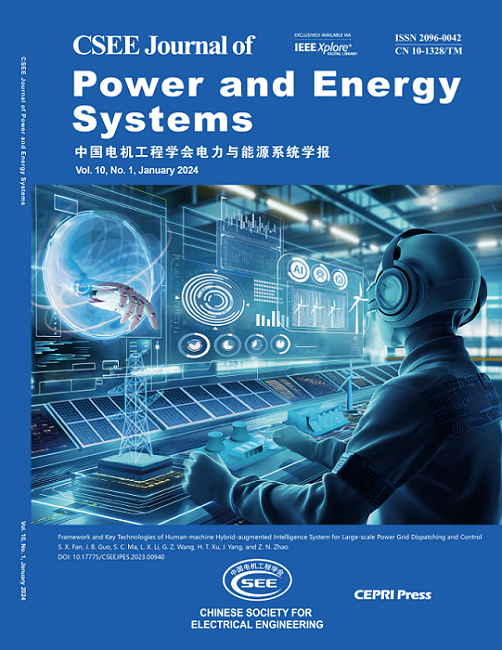Self-Sustaining of Critical Park Microgrids Integrating Mobile Emergency Generators Subjective to Major Outage
IF 5.9
2区 工程技术
Q2 ENERGY & FUELS
引用次数: 0
Abstract
In the event of a major power outage, critical park microgrids (PMGs) could be self-sustaining if mobile emergency generators (MEGs) are stationed to share energy. However, the need for privacy protection and the value of flexible power support on minute-time scales have not been given enough attention. To address the problem, this paper proposes a new self-sustaining strategy for critical PMGs integrating MEGs. First, to promote the cooperation between PMG and MEG, a bi-level benefit distribution mechanism is designed, where the participants' multiple roles and contributions are identified, and good behaviors are also awarded. Additionally, to increase the alliance benefits, three loss coordination modes are presented to guide the power exchange at the minute level between the MEG and PMG, considering the volatility of renewable generation and load. On this basis, a multi-time scale power-energy scheduling strategy is formulated via the alternating direction method of multipliers (ADMM) to coordinate the PMG and MEG. Finally, a dimensionality reduction technology is designed to equivalently simplify the optimization problem to facilitate the adaptive-step-based ADMM solution. Simulation studies indicate that the proposed strategy achieves the self-sustaining of PMGs integrating MEGs while increasing the economy by no less than 3.1%.集成移动应急发电机的重要园区微电网在大停电情况下的自我维持能力
在发生重大停电事件时,如果移动应急发电机(MEG)能够共享能源,关键园区微电网(PMGs)就能自我维持。然而,隐私保护的需求和分钟级灵活电力支持的价值尚未得到足够重视。为解决这一问题,本文提出了一种新的关键永磁发电机整合移动应急发电机的自我维持策略。首先,为促进 PMG 与 MEG 之间的合作,本文设计了一种双层利益分配机制,即对参与者的多重角色和贡献进行识别,并对良好行为进行奖励。此外,考虑到可再生能源发电和负荷的波动性,为提高联盟效益,提出了三种损耗协调模式,以指导 MEG 和 PMG 在分钟级的电力交换。在此基础上,通过乘法交替方向法(ADMM)制定了多时间尺度的电力-能源调度策略,以协调 PMG 和 MEG。最后,设计了一种降维技术来等效简化优化问题,以促进基于自适应步长的 ADMM 求解。仿真研究表明,所提出的策略实现了永磁发电机与多元气体发电机的自我维持,同时提高了不少于 3.1% 的经济效益。
本文章由计算机程序翻译,如有差异,请以英文原文为准。
求助全文
约1分钟内获得全文
求助全文
来源期刊

CSEE Journal of Power and Energy Systems
Energy-Energy (all)
CiteScore
11.80
自引率
12.70%
发文量
389
审稿时长
26 weeks
期刊介绍:
The CSEE Journal of Power and Energy Systems (JPES) is an international bimonthly journal published by the Chinese Society for Electrical Engineering (CSEE) in collaboration with CEPRI (China Electric Power Research Institute) and IEEE (The Institute of Electrical and Electronics Engineers) Inc. Indexed by SCI, Scopus, INSPEC, CSAD (Chinese Science Abstracts Database), DOAJ, and ProQuest, it serves as a platform for reporting cutting-edge theories, methods, technologies, and applications shaping the development of power systems in energy transition. The journal offers authors an international platform to enhance the reach and impact of their contributions.
 求助内容:
求助内容: 应助结果提醒方式:
应助结果提醒方式:


